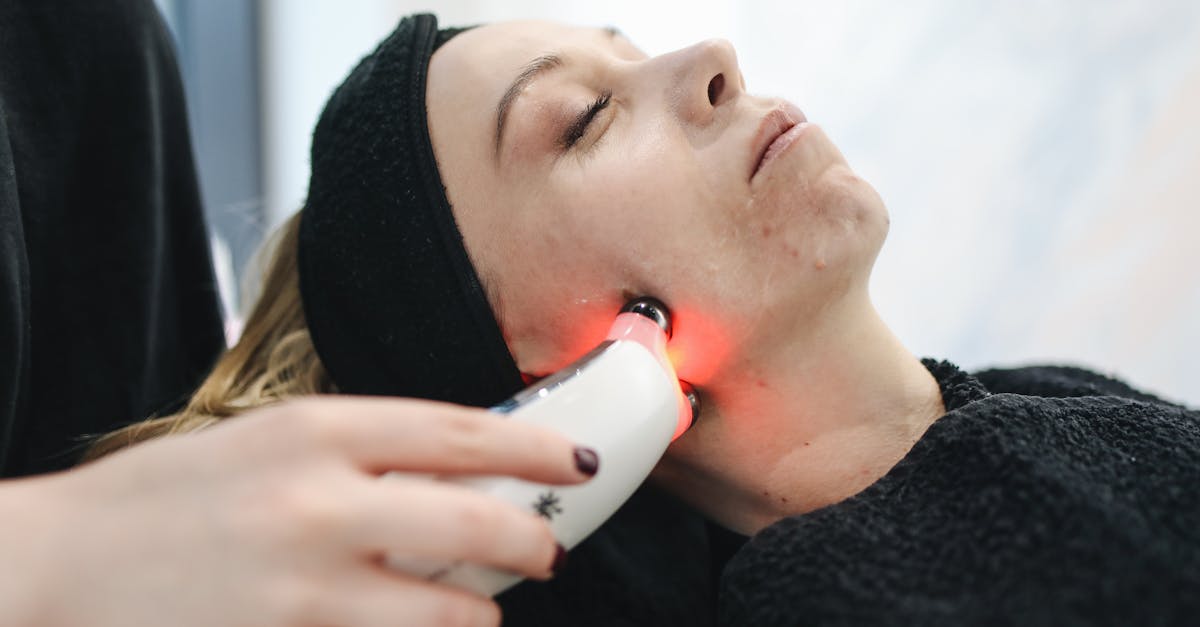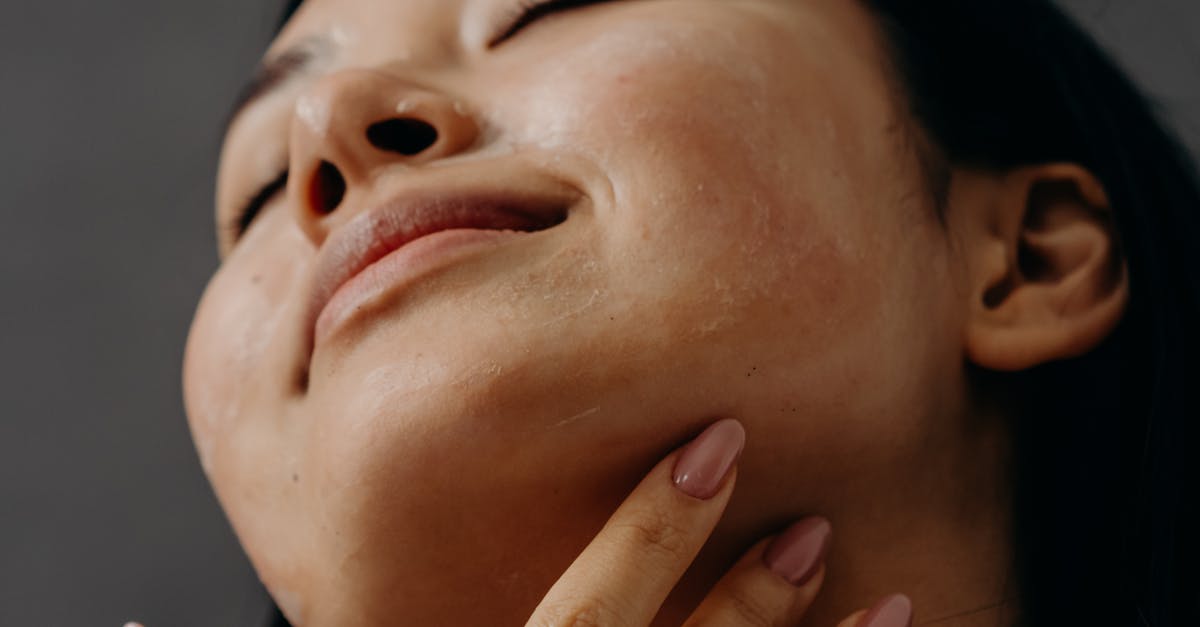
Table Of Contents
Time Frame for Complete Healing
Following a laser skin resurfacing procedure, the time frame for complete healing can vary based on individual factors such as the depth of the treatment and the type of laser used. Typically, patients can expect the initial healing process to last anywhere from one to two weeks. During this time, it is important to follow post-treatment care instructions diligently to promote optimal healing and reduce the risk of complications.
As the skin continues to heal in the weeks following the laser resurfacing treatment, patients may notice improvements in skin texture, tone, and overall appearance. However, it is essential to keep in mind that the full effects of laser skin resurfacing may take several months to become apparent. Patience is key in allowing the skin to regenerate and reveal its rejuvenated state after the procedure.
LongTerm Skin Regeneration
Long-term skin regeneration following Laser Skin Resurfacing is a gradual process that continues even after the initial healing period. The skin may appear pink or red for several weeks after the procedure as the body works to repair and renew the epidermis. Over time, collagen production increases, helping to improve skin texture and elasticity. Patients often notice continued improvements in skin quality and tone in the months following the treatment as new, healthy skin cells replace damaged ones.
It is important to protect the skin from harmful UV rays during the healing and regeneration process to prevent damage and maintain the results of Laser Skin Resurfacing. Using a broad-spectrum sunscreen daily and wearing protective clothing can aid in safeguarding the skin from premature aging and hyperpigmentation. Additionally, following a skincare routine recommended by your dermatologist can further enhance the long-term effects of the procedure, promoting ongoing skin health and vitality.
FollowUp Appointments
During follow-up appointments after laser skin resurfacing, your dermatologist will assess the progress of your skin healing and address any concerns you may have. These appointments are crucial for monitoring how well your skin is responding to the treatment and ensuring that you are on track for optimal results. Your dermatologist will evaluate the healing process, discuss any potential side effects, and provide recommendations for ongoing care to promote healthy skin regeneration. Keep in mind that the number of follow-up appointments needed may vary depending on your skin type and the extent of the laser resurfacing performed.
Regular follow-up appointments with your dermatologist are essential to track the long-term effects of laser skin resurfacing and to address any skin issues that may arise. These appointments also allow your dermatologist to customize your skincare routine and recommend specific products to enhance the healing process. By staying consistent with your follow-up appointments, you can ensure that your skin heals properly and achieve the best possible outcomes from your laser skin resurfacing treatment. Remember to communicate openly with your dermatologist about any concerns or changes you notice in your skin post-treatment.
Consulting with Your Dermatologist
Consulting with your dermatologist is crucial post Laser Skin Resurfacing. Your dermatologist will provide personalized guidance on how to care for your skin during the healing process and answer any questions or concerns you may have. They can assess your skin's condition, monitor the healing progress, and recommend specific skincare products that are suitable for your skin type to promote optimal healing. Furthermore, your dermatologist can offer advice on how to protect your skin from potential damage, such as sun exposure, which can hinder the healing process and affect the final outcome of the treatment.
Regular consultations with your dermatologist ensure that your skin is healing as expected and allow for any necessary adjustments in your post-treatment care plan. By following your dermatologist's recommendations and attending your scheduled follow-up appointments, you can maximize the results of Laser Skin Resurfacing and promote long-term skin health. Remember, your dermatologist is your partner in achieving the best possible outcome, so do not hesitate to reach out to them with any concerns or questions throughout your healing journey.
Enhancing Skin Healing
Enhancing skin healing after Laser Skin Resurfacing is crucial to achieving optimal results. To promote faster recovery and better outcomes, it is essential to diligently follow post-treatment care instructions provided by your dermatologist. This often includes using gentle cleansers, moisturizing regularly, and avoiding direct sunlight exposure to protect the newly treated skin.
In addition to following the recommended skincare routine, incorporating healthy lifestyle habits can further support the healing process. Eating a balanced diet rich in vitamins and minerals can provide the nutrients necessary for skin regeneration. Staying hydrated and getting an adequate amount of sleep can also aid in overall healing and help the skin recover more quickly after Laser Skin Resurfacing.
Incorporating Healthy Lifestyle Habits
Incorporating healthy lifestyle habits can significantly contribute to the healing process post-Laser Skin Resurfacing. Ensuring a well-balanced diet rich in vitamins and minerals is crucial for promoting skin regeneration. Eating plenty of fruits, vegetables, lean proteins, and whole grains can provide the necessary nutrients for skin repair and rejuvenation. Additionally, staying hydrated by drinking an adequate amount of water daily can help maintain skin elasticity and promote overall healing.
Regular exercise can also play a vital role in enhancing skin healing after Laser Skin Resurfacing. Engaging in physical activity can improve blood circulation, which in turn promotes the delivery of essential nutrients to the skin cells. Moreover, exercise can help reduce stress levels, which is beneficial for overall skin health. Incorporating a combination of cardiovascular workouts and strength training into your routine can boost your skin's healing process and contribute to long-term skin rejuvenation.
FAQS
How long does it take for the skin to heal after laser resurfacing?
The time frame for complete healing after laser resurfacing typically ranges from 1 to 2 weeks, depending on the intensity of the treatment and individual skin response.
What can I expect during the long-term skin regeneration process post laser resurfacing?
After the initial healing period, your skin will continue to improve over the following months as collagen production increases, resulting in smoother, healthier-looking skin.
How often should I schedule follow-up appointments after laser resurfacing?
It is recommended to schedule follow-up appointments with your dermatologist at regular intervals to monitor your skin's progress and address any concerns that may arise during the healing process.
What should I consider when consulting with my dermatologist about skin healing post laser resurfacing?
During consultations with your dermatologist, discuss any symptoms of discomfort, redness, or swelling you may be experiencing, as well as any changes in your skin's appearance, to ensure proper healing.
How can I enhance the healing process of my skin after laser resurfacing?
To enhance skin healing post laser resurfacing, it is important to follow your dermatologist's aftercare instructions, protect your skin from sun exposure, stay hydrated, and maintain a healthy skincare routine.


